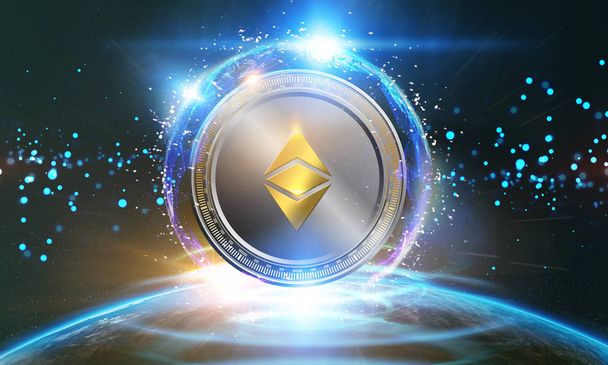The recent greenlight for spot Bitcoin ETFs is a landmark moment for digital assets, but the impending approval of spot Ether ETFs without staking rewards is a missed opportunity. Unlike Bitcoin, Ethereum is a dynamic platform underpinning a vast ecosystem of decentralized applications. Excluding staking from Ether ETFs fails to recognize this fundamental distinction and limits the investment potential offered by the world’s second-largest cryptocurrency. To truly unlock Ethereum’s value proposition, financial products must evolve to encompass the full spectrum of its utility.

Ethereum Is Beyond Just a Store of Value
To grasp the full potential of Ether ETFs, it’s essential to understand the mechanics of Ethereum. Unlike Bitcoin, which primarily functions as a digital gold, Ethereum is a dynamic platform that powers a vast array of decentralized applications. At the core of Ethereum’s operations is staking, a process where users lock up their Ether to secure the network and earn rewards.
Before Ethereum’s transition to a Proof-of-Stake (PoS) consensus mechanism in 2020, it relied on energy-intensive mining like Bitcoin. However, the shift to PoS has transformed Ethereum into a more sustainable and efficient network. Today, billions of dollars worth of Ether are staked, demonstrating the critical role this mechanism plays in maintaining the platform’s security and decentralization.
Bitcoin, conversely, is a digital scarcity asset built on a Proof-of-Work (PoW) consensus model. Its primary value proposition lies in its limited supply and its potential as a hedge against inflation. While Bitcoin has carved a niche as a digital store of value, Ethereum’s utility extends far beyond this, making it a fundamentally different asset class.
Recognizing these distinctions is crucial for crafting investment products that accurately reflect the unique characteristics of each cryptocurrency.
Bitcoin vs. Ethereum
The recent approval of spot Bitcoin ETFs marks a significant milestone in the mainstream adoption of cryptocurrencies. As a digital commodity with a finite supply and historical price volatility, Bitcoin has proven to be a compelling asset for portfolio diversification. Its role as a potential hedge against inflation and its uncorrelated nature to traditional assets make it a valuable addition to investment strategies.
However, Ethereum is a fundamentally different asset. While it shares some characteristics of a currency, its true value lies in its role as the backbone of a burgeoning decentralized ecosystem. As a platform that underpins smart contracts, decentralized applications, and emerging technologies like NFTs and DeFi, Ethereum offers a multifaceted investment proposition.
Staking, a core component of the Ethereum network, is a critical factor differentiating it from Bitcoin. It not only secures the network but also provides a yield-generating mechanism for token holders. By omitting staking rewards, spot Ether ETFs fail to capture the full spectrum of Ethereum’s economic model. This oversight is akin to investing in a real estate investment trust without considering rental income.
To fully harness the potential of Ethereum, investment products must evolve to reflect the asset’s unique characteristics. A spot Ether ETF without staking is a truncated representation of this dynamic and transformative technology.

The Allure of Staking in Ethereum ETFs
Staking within an Ethereum ETF offers investors a compelling opportunity to participate in the Ethereum ecosystem while potentially enhancing returns. By delegating their Ether to professional validators, investors can earn staking rewards, a portion of newly minted Ether and transaction fees. This additional income stream can significantly bolster overall portfolio performance, providing a compelling argument for staking-enabled ETFs.
Beyond financial incentives, staking aligns investors with the network’s long-term success. As validators, investors contribute directly to Ethereum’s security and decentralization. This symbiotic relationship fosters a healthier ecosystem and can positively impact the long-term value of Ether.
Moreover, staking can serve as an educational tool, introducing investors to the intricacies of blockchain technology. By understanding the mechanics of staking, investors gain a deeper appreciation for Ethereum’s role in the evolving digital economy.
While staking can potentially mitigate some of Ethereum’s price volatility, it’s essential to remember that the cryptocurrency market remains inherently unpredictable. The magnitude of staking rewards may not always offset short-term price fluctuations. Nonetheless, the consistent income generated through staking can provide a valuable ballast for investors seeking a more stable return profile.
Ultimately, staking-enabled Ethereum ETFs offer a compelling investment proposition by combining the potential for capital appreciation with the benefits of yield generation and network participation.
Learn from market wizards: Books to take your trading to the next level
















